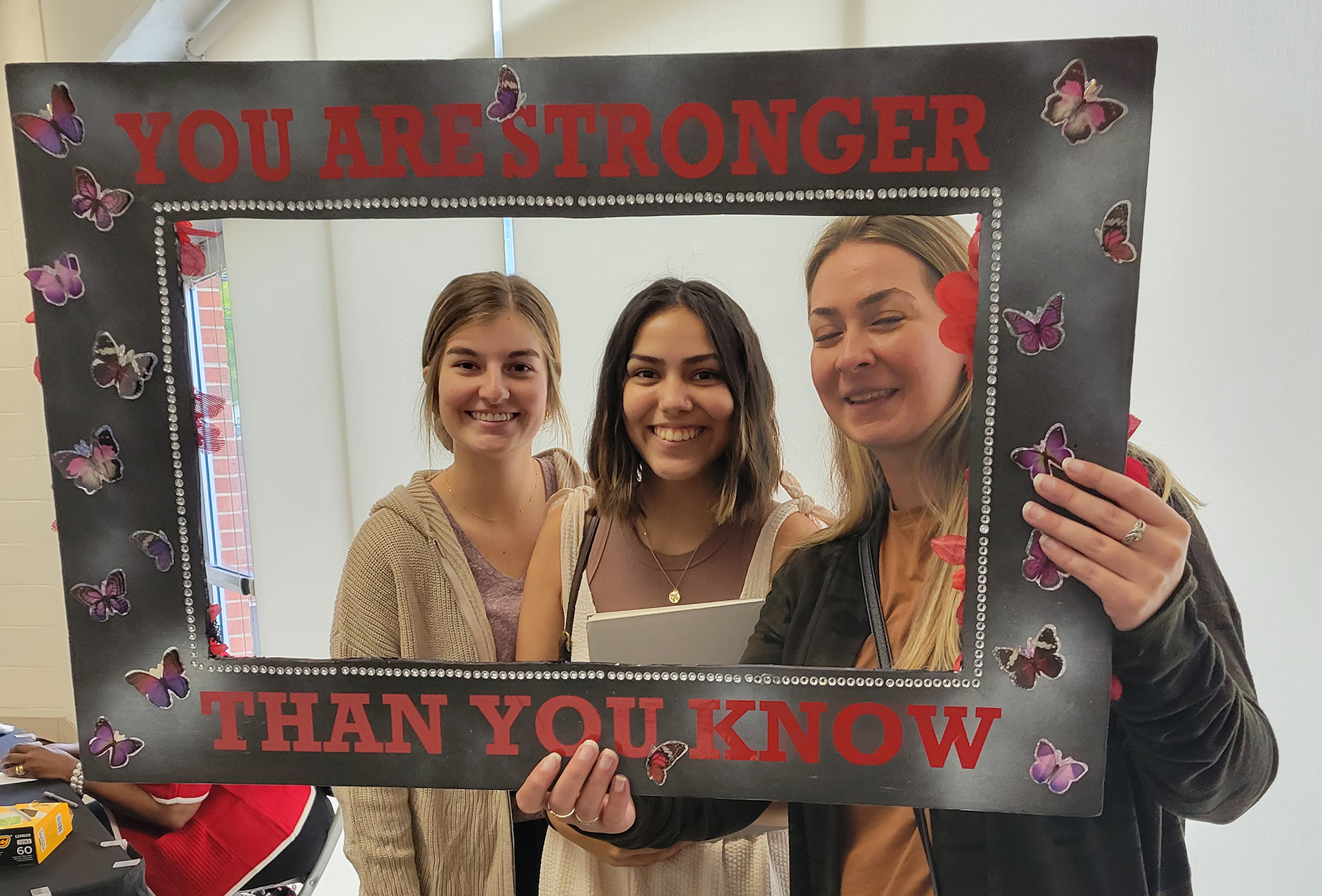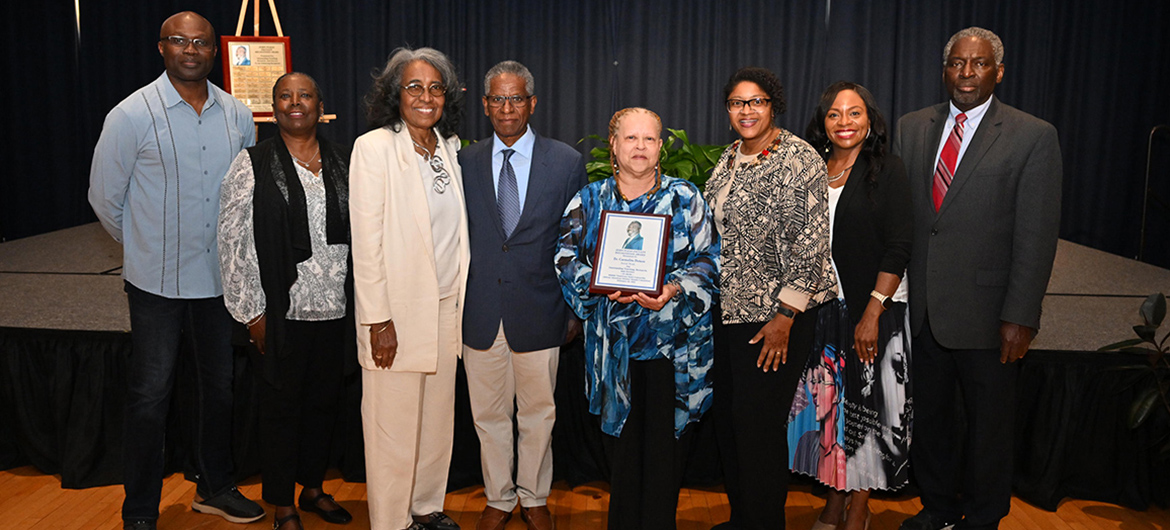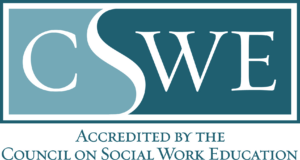
Social Work
Prepare for impactful social work practice with a focus on justice, diversity, and community well-being. Accredited by CSWE.
Social Work, B.S.W.
 The Bachelor of Social Work degree program is offered through the College of Behavioral and Health Sciences at MTSU.
The Bachelor of Social Work degree program is offered through the College of Behavioral and Health Sciences at MTSU.
Social workers promote human and community well-being; their courses focus on developing competent, ethical professionals with the knowledge, values, and skills for effective practice with individuals, families, groups, agencies, and communities. Guided by an awareness of individuals and their environment, a global perspective, respect for human diversity, and knowledge based on scientific inquiry, social work's purpose is realized through its quest for social and economic justice, the prevention of conditions that limit human rights, the elimination of poverty, and the enhancement of the quality of life for all persons. The major in Social Work leads to a Bachelor of Social Work (B.S.W.) degree which is accredited by the Council on Social Work Education. The program's primary objective is to prepare the student for beginning professional practice in social work. It also provides a foundation for students planning to pursue graduate study in social work.
Department of Social Work
The Department of Social Work at MTSU prepares students to serve as social work practitioners, scholars, and leaders who assist individuals, families, groups, and communities at the local, national, and international levels. Our faculty seeks to develop culturally informed, community-engaged students who promote social justice and respect for diversity and human rights through research, coursework, fieldwork, and public service.
The Goals of the Social Work Program
- To prepare a diverse student population for generalist social work practice with systems of all sizes that is built on an understanding of the value base of the profession and its ethical standards.
- To provide a flexible educational program that increases the student's understanding of the ways which diversity and difference characterize the human experience, and which are critical to the formation of professional identity.
- To help students develop the understanding that every person has fundamental human rights and to assist students in understanding strategies designed to eliminate oppressive structural barriers and promote social economic, and environmental justice.
- To prepare graduates with an understanding of quantitative and qualitative research methods and their respective roles in advancing a science of social work and in evaluating practice.
- To ensure students understand that human rights and justice are mediated by policy and its implementation at the federal, state, and local levels, and the global influences that affect social policy.
- To prepare students through academic rigor and experiential learning to engage, assess, intervene, and evaluate diverse individuals, families, groups, organizations, and communities, utilizing evidence-based theoretical frameworks, teamwork, and collaboration.
News Briefs

June Anderson Foundation awards scholarships to 4 nontraditional MTSU students
Four nontraditional students at Middle Tennessee State University got a boost to their education as recipients of the 2025 June S. Anderson Scholarship.[ Read More ]

MTSU’s Pleas Faculty Award winner Carmelita Dotson ‘lives and embodies social work’
Amazing, phenomenal, invaluable, creative — all words used to describe Middle Tennessee State University assistant professor and Bachelor of Social Work program coordinator Carmelita Dotson, who was honored Thursday, March 27, as recipient of the 2025 John Pleas Faculty Award.[ Read More ]
News Briefs

June Anderson Foundation awards scholarships to 4 nontraditional MTSU students
Four nontraditional students at Middle Tennessee State University got a boost to their education as recipients of the 2025 June S. Anderson Scholarship.[ Read More ]

MTSU’s Pleas Faculty Award winner Carmelita Dotson ‘lives and embodies social work’
Amazing, phenomenal, invaluable, creative — all words used to describe Middle Tennessee State University assistant professor and Bachelor of Social Work program coordinator Carmelita Dotson, who was honored Thursday, March 27, as recipient of the 2025 John Pleas Faculty Award.[ Read More ]
Related Media

Social Work, B.S.W.
Graduates are employed in many different public and private work settings, including
- Aging services
- Child and adult day care centers
- Child welfare agencies
- Children and youth services
- Community action agencies
- Criminal justice agencies
- Domestic violence programs
- Family services agencies
- Home care agencies
- Homeless shelters
- Hospices
- Hospitals
- Income maintenance programs
- Legal services agencies
- Mental retardation/developmental disabilities services
- Nursing homes
- Public health agencies
- Residential treatment programs
- Schools (elementary and secondary)
- Substance abuse programs
- Vocational rehabilitation services
Employers of MTSU alumni include
- ACLU of Tennessee
- Alzheimer's Association
- Behavioral Health Services
- Big Brothers & Big Sisters
- Catholic Charities
- Child Advocacy Center
- Domestic Violence Program
- Drug Court
- Greenhouse Ministries
- Mental Health Court
- MTSU Disabled Student Services
- Murfreesboro City Schools
- Nashville Vet Center
- Planned Parenthood
- Probation and Parole
- Project Help
- Rutherford County Schools
- Sunnington Assisted Living
- Tennessee Commission on Children and Youth
- Tennessee Department of Children's Services
- Vet Success Center of MTSU

MTSU’s Career Development Center
MTSU offers a comprehensive Career Development Center that serves students throughout the full student experience and beyond. They collaborate with faculty and staff to equip students with the tools to be marketable to the world of work and continuing education.
Students can schedule an appointment or check online resources and job boards at mtsu.edu/career.
Students can find current internship opportunities by talking to faculty and visiting the University job and internship board called Handshake.
Wondering what you can do with your major? Check out our What Can I Do with A Major In guides.



Professional Licensure Disclosure
The Bachelor of Social Work (BSW) in the College of Behavioral and Health Sciences is accredited by the Council on Social Work Education (CSWE). Admission to the BSW does not guarantee that students will pass the Association of Social Work Boards Exam (ASWB Exam) or obtain a social worker license. Successful completion of the 120-hour BSW meets the educational requirements to sit for the Association of Social Work Boards Exam (ASWB Exam) and seek licensure as a Baccalaureate Social Worker in Tennessee.
Licensing authorities for each state set and enforce their own requirements and standards, which are subject to change. The BSW disclosure provided on MTSU’s professional licensure disclosure website indicates the states and territories where MTSU has determined, through reasonable and good faith effort, that the program does or does not meet the educational requirements for other US states and territories. Current and prospective students not located in Tennessee or who plan to seek licensure or certification outside the state of Tennessee should contact the appropriate state licensing agency or board and discuss their plans with an advisor before enrolling in the program to ensure they have the most up-to-date information and guidance regarding licensure requirements.
Accreditation
The Middle Tennessee State University Bachelor of Social Work program is accredited by the Council on Social Work Education's Commission on Accreditation.
Accreditation of a baccalaureate or master's social work program by the Council on Social Work Education's Commission on Accreditation indicates that it meets or exceeds criteria for the assessment of program quality evaluated through a peer review process. An accredited program has sufficient resources to meet its mission and goals and the Commission on Accreditation has verified that it demonstrates compliance with all sections of the Educational Policy and Accreditation Standards.
Accreditation applies to all program sites and program delivery methods of an accredited program. Accreditation provides reasonable assurance about the quality of the program and the competence of students graduating from the program.
For more information about social work accreditation, you may contact the Council of Social Work Education for information about accreditation.

Core Competencies (Assessment)
https://www.cswe.org/accreditation/policies-process/2022epas/
Resources

CONTACT US
















